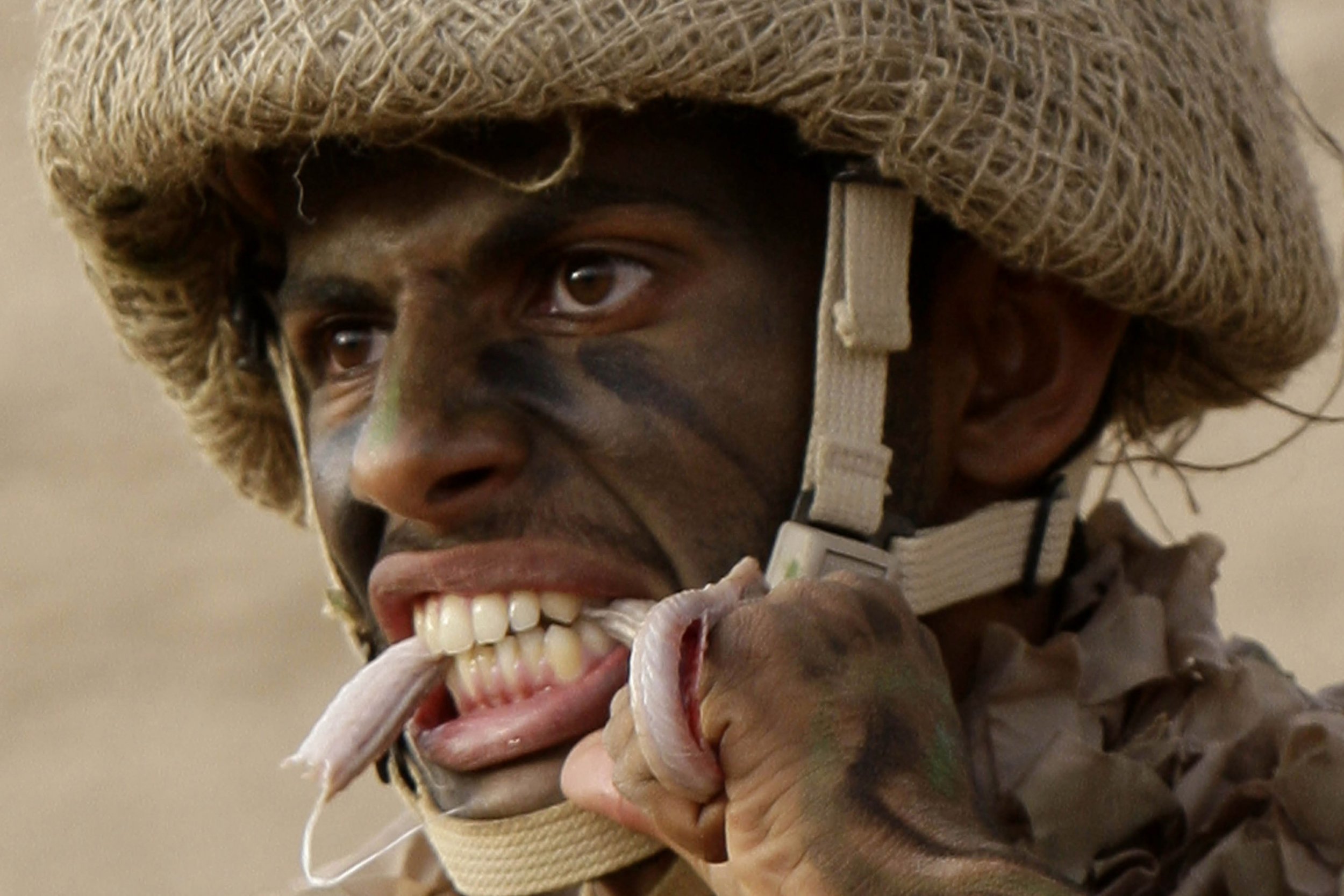
Saudi Arabia's powerful crown prince Mohammed bin Salman vowed to "wipe terrorists from the earth" in a meeting of the Islamic Military Coalition held Sunday.
"In past years, terrorism has been functioning in all of our countries... with no coordination" the crown prince, who is also the Saudi defense minister, said in a speech to leaders from around 40 Muslim-majority countries who gathered in the Saudi capital. "This ends today, with this alliance."
International observers reacted to the prince's comments with a mixture of support and cynicism. But some experts argue the prince could play a pivotal role in combating terrorism and Sunni extremism in the Middle East, especially the Wahhabi extremism that inspired terrorist groups like the Islamic State militant group (ISIS).
"Many of the most violent terrorist groups in the Middle East adhere to the same school of thought, known as Wahhabism, that the Saudi government does," Chris Meserole, a Middle East expert at the Brookings Institution, told Newsweek.
"So if Muhammad bin Salman can discredit Wahhabist extremism in particular, it would be an enormous boon to peace and stability, not only in the kingdom but the broader region."
1. Saudi Arabia heads a big conference to eradicate terrorism.
— Max Abrahms (@MaxAbrahms) November 27, 2017
2. Saudi Arabia excludes Iran.
3. Saudi Arabia boasts about the defeat of ISIS.
4. Saudi Arabia neglects to mention it was Iran — not Saudi Arabia — that played a key role in crushing ISIS. https://t.co/T4UddAbZWa
The Islamic Military Coalition was originally announced two years ago, but it hasn't taken any notable action since. Officials say the union allows member states to provide each other with assistance in counter-terrorism measures, including military and intelligence assistance against terrorist groups.
The Saudi leadership has said it plans to combat terrorism in the Middle East and move toward a more moderate form of Islam. The recent historic decision by Saudi leadership to allow women to drive is viewed as a sign that the country is relaxing its stringent religious laws. But experts argue that the Saudi's counterterrorism role has a checkered history.
"The Saudis have long played both arsonist and firefighter — fanning the flames of extremism with one hand, while trying to extinguish them with the other," Meserole noted.
Meanwhile, some analysts say that the real purpose of the military alliance is to strengthen Saudi Arabia's ties with its regional allies against Iran, which Saudi Arabia views as its regional enemy. In recent months, Saudi Arabia's rhetoric toward Iran has become more and more bellicose.
"The rhetoric of counter-terrorism has been used and abused in many states to pursue, or hide, alternative political goals in both foreign and domestic spheres. This is evident from new counterterrorism laws in the Kingdom of Saudi Arabia that re-classify criticism of the King and Crown Prince as acts of terrorism," Harrison Akins, a researcher at the Howard Baker Center, told Newsweek.
"While this could be seen as strengthening regional security cooperation among the alliance's member states, it could also raise the stakes for a nascent conflict between Saudi Arabia and Iran that continues to bubble under the surface."
Islamic Military Counter Terrorism Coalition - #IMCTC#AlliedAgainstTerrorism pic.twitter.com/SXmWUT7Lr4
— Pakistan Defence Command (@PDCMDOfficial) November 27, 2017
On Sunday, the crown prince condemned an attack on a mosque in Egypt that killed more than 300 worshipers. Experts believe that the attack was carried out by supporters of ISIS.
"[The attack] was a very painful occurrence and must make us contemplate in an international and powerful way the role of this terrorism and extremism," the prince said.
Iraq and Syria, countries that have battled ISIS within their borders and have governments allied with Iran, are not members of the coalition.
"It is noteworthy what states are outside the coalition, supporting the view that this is a Sunni alliance against Iran and other Shia-led states," Akins added.
Saudi lieutenant general Abdulelah al-Saleh denied claims that the coalition aimed to create a Sunni bloc against Iran.
"The enemy is terrorism. It's not sects or religions or races, it is terrorism," Saleh told reporters.
Representatives of countries such as Egypt, Bahrain, Afghanistan, Uganda, Somalia, Mauritania, Lebanon, Libya, Yemen, and Turkey attended Sunday's gathering. Retired Pakistani general Raheel Sharif was appointed commander-in-chief of the coalition.
Uncommon Knowledge
Newsweek is committed to challenging conventional wisdom and finding connections in the search for common ground.
Newsweek is committed to challenging conventional wisdom and finding connections in the search for common ground.
About the writer
Cristina Maza is an award-winning journalist who has reported from countries such as Cambodia, Kyrgyzstan, India, Lithuania, Serbia, and Turkey. ... Read more
To read how Newsweek uses AI as a newsroom tool, Click here.





